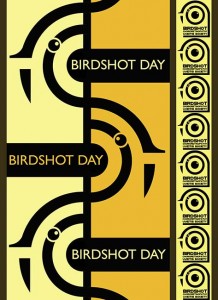An Australian Birdshot colleague of ours called Neil, recently wrote to us to tell us about his experimental approach to supplements. He has been trying to find a way of improving his vision through supplements and told us why he had decided to do this.
Over the years he has been on a number of the usual toxic treatments. Following a recent flare he was put on prednisolone and methotrexate. He reports that after some months on the methotrexate, a wavy line suggested his eyes were continuing to deteriorate and 15 mg/day of prednisolone was added for a couple of months after an ERG result showed rods were bad; cones were indicating nobody home!
Here is Neil’s story in his own words (much of what he says will ring bells with many of us).
“I noticed an article http://abstracts.iovs.org/cgi/content/abstract/43/12/2542 on increased retinal activity following a trial of a group of people taking lutein, nicotinamide (vitamin B group) and vitamin E, so thought I might as well try it for myself to see if it made any difference to my ERG tests, on the assumption that it would not have a negative effect.
To mimic the study, I took a bilberry and lutein tablet, a multi-B and vitamin E tablet. In addition I took folic acid in the Multi-B which I understand helps with tolerating Methotrexate.
The ERG in January and check up in March showed that the left eye reading level had returned to the level two years previously (couple of extra lines) and I am seeing a little more when I enter a darkened room.
Retinal inflammation has gone with prednisone and I can read with my left eye again.
So all I can say is the lutein, nicotinamide and vitamin E didn’t harm my outcome.
Here are the details of what I took.
The Health food shop found me NutriVital Mega B High Potency tabs one per day
viz: http://www.nutrivital.com.au/product_detail.php?seq=23
I added Natures Way Vitamin E 500 iu – one per day although I didn’t take quite as reliably)
and
Bilberry 10,000 plus with lutein by Micro genics vision deficiency formula – one per day
http://www.micro-genics.com.au/product/bilberry-10000-plus-vision.html
I also used Nutralife Bilberry 10,000 plus + lutein complex as the tablets were easier to take from a bottle rather than in foil.
Subsequently my GP recommended I increase the folic acid to 5mg/day to counter methotrexate effects, but the improvement was evident before then.
I was on 10 mg methotrexate once per week for a few months after complaining of loss of central clarity in left eye and an ERG test that showed basically non-detectable response to rods and cones with some small response to flashing light, but not for night vision. Some wavy lines at the edge of the computer screen worried me and a scan showed some retinal swelling in central left eye, so (reluctantly) I added 15 mg/day prednisone.
I tapered this back myself to 10 mg/day until just before the next ERG was due… then…
Coming back from a fishing trip I noticed light poles bent half way up – 1m to the right through my left eye, so I boosted for a few days to 20mg/day prednisone to try to cheat on my ERG.
After verbally savaging my 20 year old son and snapping at my wife, I admitted defeat and reduced the dosage of steroids.
ERG showed 50’s and 60’s for rods and cones this time and I felt night vision had returned to vaguely useful entering a dark room and possibly dusk driving. (evidently normal range is 250 to 600 so I hardly starred it, but it’s better measurably)
Stayed on 12.5 mg/day prednisone for a couple of months and bent poles went away – slight horizontal bump in reading 12 point letters but left eye continues to improve and down to 10 mg/day prednisone.
Eye section scan showed rods and cones in left eye looking reasonably normal thickness in parts of scan which is interesting as I feel my peripheral vision has improved in that eye. Eye chart was about 2 lines better with pinhole as glare still a problem so I’m back to 2009 levels on the irrelevant eye test.
My choice of sunglasses has changed from dark grey or yellow to light grey polarised and I can almost say glare tolerance is improving as a consequence of this choice for driving.
Can’t say if prednisone or supplement has contributed to improvement but I continue to take both as the trial lasted 12 months and I am 7 or 8 months on from trying it.
Red wine, chocolate and thai curries are also a feature as is dark matured Australian Bundaberg Rum with Coca-Cola, so feel free to adopt any that appeal – with lots of fresh fruit.”
LoL Neil
 The Birdshot Day DVD has finally arrived. It contains recordings of all of the days talks, interviews with people with Birdshot, health professionals, charities and low vision specialists who attended.
The Birdshot Day DVD has finally arrived. It contains recordings of all of the days talks, interviews with people with Birdshot, health professionals, charities and low vision specialists who attended.